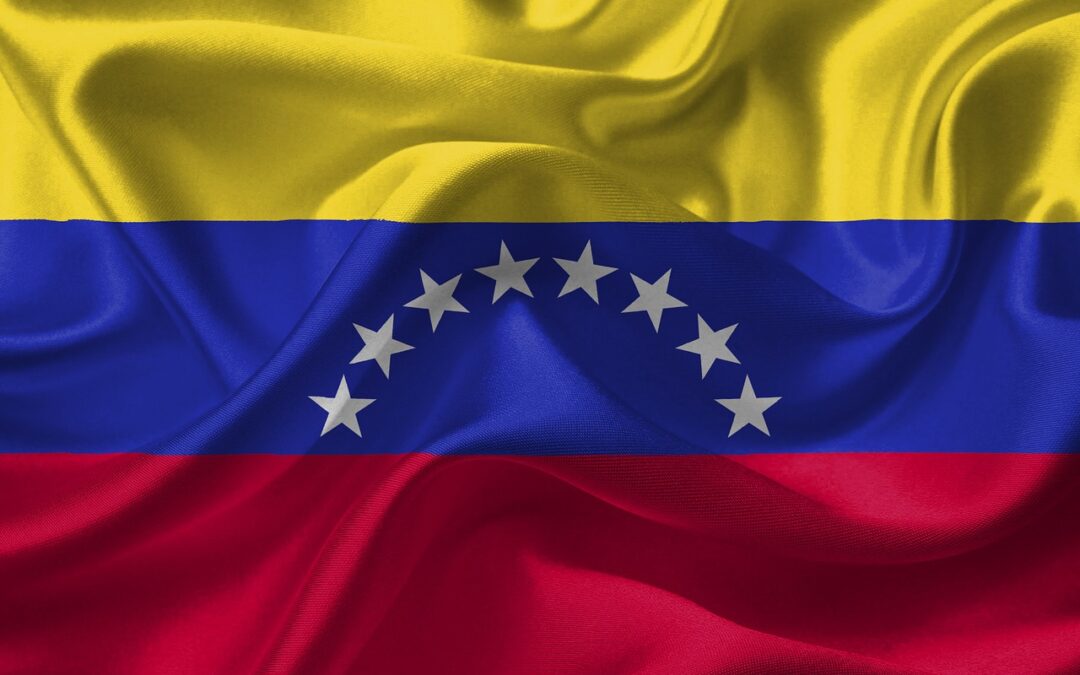

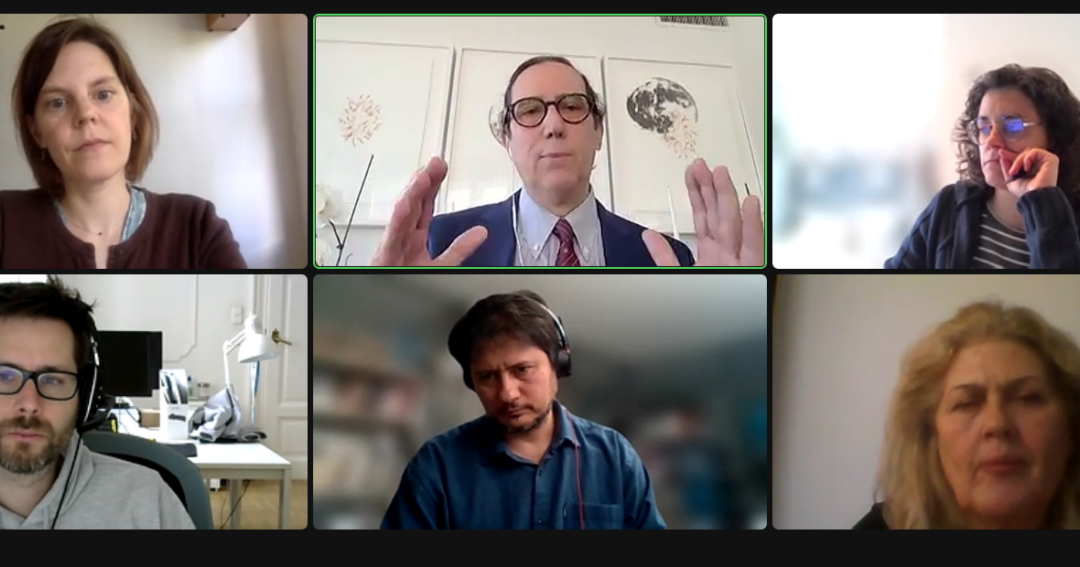
EU: Comparative discussion on the right of judges to be independent
On 2 May 2024, the International Commission of Jurists (ICJ) held a meeting for EU lawyers to discuss the right of judges to independence, as established by the jurisprudence of the Inter-American system.
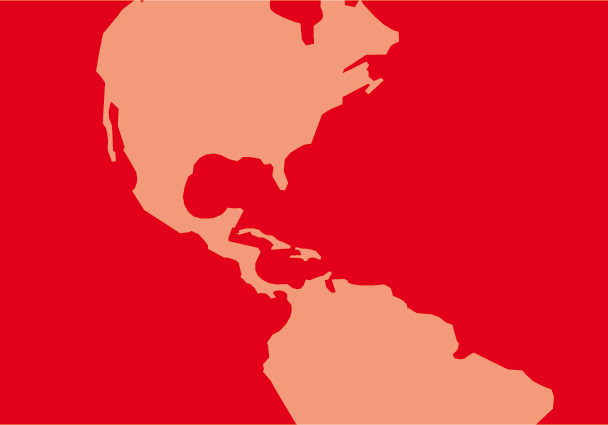
Guatemala: Peaceful transfer of presidential power must proceed on 14 January in accordance with the Rule of Law
The ICJ is concerned about attempts by powerful actors in Guatemala, including the Office of the Attorney General, to subvert the transfer of executive presidential authority to President-elect Bernardo Arévalo de León, who is due take office on 14 January 2024.
The ICJ calls on all State authorities and private parties to respect the Rule of Law and desist from interference in the process of transition and to cease efforts to revoke or make ineffective the results of the 2023 presidential elections.
“The democratic system in Guatemala is at stake. It is shocking that the attempts against the electoral process come from representatives of State institutions that have a legal duty to uphold democracy and human rights,” said Santiago Canton, ICJ Secretary General. “Members of the Office of the Attorney General, Congress, and the judiciary have acted in total disregard of Guatemala’s international obligations. In particular, Article 1 of the Inter-American Democratic Charter establishes the right of the peoples of the Americas to democracy and the duty of governments to promote and defend democracy,” added Canton.
On 20 August 2023, Bernardo Arévalo de León and Karin Herrera Aguilar of the “Movimiento Semilla” party were elected President and Vice-President respectively for the 2024-2028 presidential term. Their victory was certified by the Guatemalan Supreme Electoral Tribunal. Prior to and after the election, there were multiple attempts by the Office of the Attorney General and other authorities to disrupt the presidential election process. The European Parliament and the Organization of American States (OAS) have condemned and characterized certain of these efforts as an “attempted coup d’état”.
The Office of the Attorney General, led by María Consuelo Porras Argueta, has played a leading role in these attempts through the arbitrary use of its prosecutorial powers. Among other actions, the Office of the Attorney General has opened unwarranted and spurious criminal investigations and issued of arrest warrants and search warrants against justices and staff members of the Supreme Electoral Tribunal, President-elect Arévalo, Vice-President-elect Herrera, members of the “Movimiento Semilla” party, members of civil society organizations, academicians, and students.
The Office of the Attorney General has also expressly cast doubt on the legitimacy of the 2023 presidential election process. At a press conference on 8 December 2023 a chief prosecutor, José Rafael Curruchiche Cucul, claimed that the Supreme Electoral Tribunal “made a mockery of Guatemalans” and was involved in “violating the country’s democracy”. He also affirmed that the Attorney General’s Office’s view was that the 2023 elections should be annulled.
A number of judges have contributed to the arbitrary use of the criminal law to the detriment of the rule of law in Guatemala. On 8 January 2024, the Seventh Criminal Court Judge, Fredy Raul Orellana Letona, filed a petition before the Supreme Electoral Tribunal to execute an order for the provisional suspension of the legal personality of the “Movimiento Semilla” party. Orellana has also demanded a criminal investigation against staff members of the Supreme Electoral Tribunal.
In November and December 2023, the Guatemalan Congress and the Supreme Court of Justice engaged in legal proceedings aimed at waiving immunity from criminal prosecution of some justices of the Supreme Electoral Tribunal.
The lawful transfer of power is intrinsically linked to the respect for the rule of law and the exercise of human rights and fundamental freedoms, including the right to participate in political and public life, including through voting and standing for elections. These rights are guaranteed by international instruments to which Guatemala is a State party, such as the International Covenant on Civil and Political Rights, the American Convention on Human Rights, and the Inter-American Democratic Charter. Consequently, the ICJ recalls that the Guatemalan authorities are bound by international obligations under these instruments.
The ICJ also calls on engaged States and the international community to act to ensure that the Guatemalan authorities uphold of the rule of law, human rights, and the democratic system. If necessary, Member States of the OAS should trigger the application of Article 20 of the Inter-American Democratic Charter in the event that President-elect Arévalo is obstructed from assuming office.
Background information
The 2023 presidential election took place in a context of widespread impunity for serious human rights violations over the course of decades, reliable allegations of co-option of judicial bodies, widespread institutional corruption, and attacks against members of civil society organizations and political parties, as documented by multiple instances, including the Inter-American Commission on Human Rights (IACHR). In the case of justice officials (judges and prosecutors), the UN High Commissioner for Human Rights has expressed his concern about “the growing number of criminal cases brought against justice officials” and the “intimidation, harassment, prosecution and persecution of those fighting for accountability for human rights violations, including work on corruption cases”.
There have been numerous actions apparently aimed at undermining the integrity of the presidential election process by the Attorney General and prosecutorial authorities. In addition to the incidents mentioned above, on 16 November 2023, the Office of the Attorney General issued 31 search warrants and 27 arrest warrants against activists, students, academics, a member of the Semilla Movement, and human rights defenders. Among those targeted was the human rights lawyer Ramón Cadena, who had previously denounced irregularities committed by the Office of the Attorney General. The charges were related to their participation in the 2022 protests against the election of the rector of the San Carlos University. On the same day, the Attorney General’s Office also alleged that President-elect Arévalo and Vice-president elect Herrera were involved in the “violent” protests seeking political advantage. For the purported participation in the protests, the Attorney General’s Office announced that it would request that President-elect Arévalo, Vice-President elect Herrera, and other members of their party be stripped of their immunity from prosecution.
On 14 December 2023, the Constitutional Court handed down an amparo action in which it exhorted Congress to preserve the democratic regime and to take all measures to ensure the peaceful transfer of power on 14 January 2024. In addition, the Court enjoined all Guatemalan authorities to “act in accordance with their functions for the effectiveness and proper completion of the final stage of the electoral process”. On 11 January 2024, the Constitutional Court also granted a “protection order” in favour of the Vice-President-elect Herrera. The Court ordered all judicial authorities not to issue or grant any arrest warrant against Herrera without waiving immunity from prosecution.
The 2023 electoral situation has been the subject of grave concern of international instances, including the European Union and the Organization of American States. In this connection, the IACHR granted precautionary measures in favour of Arévalo and Herrera on 24 August 2023. The precautionary measures considered Arévalo’s allegations of death threats, harassment, a smear campaign, and illegal surveillance.
On 11 December 2023, the IACHR adopted “Resolution 03/2023, Instrumentalization of the Justice System and Serious Risks for the Rule of Law in Guatemala”. The IACHR stated that Guatemala was experiencing a “serious political and institutional crisis” due to “the unwarranted and arbitrary actions and interference of the Attorney General’s Office, which are endangering the results of this year’s General Election”.
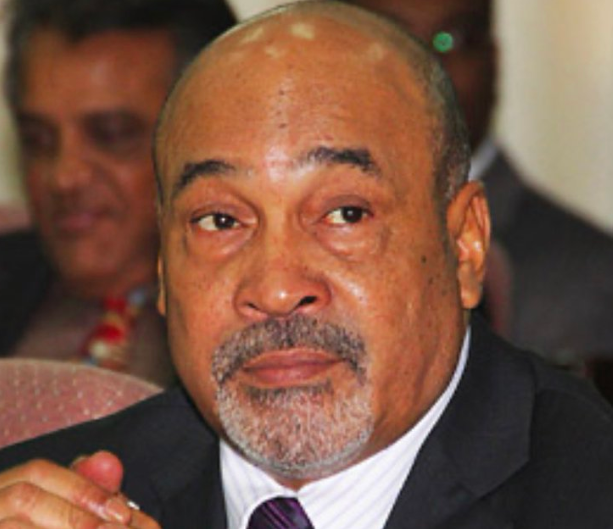
Suriname: Ex-president’s conviction upheld, ending 41 years of impunity
Desi Bouterse sentenced to 20 years in prison
Paramaribo, Suriname; 20 December 2023 – The International Commission of Jurists (ICJ) welcomed the 20 December decision by the Hof van Justitie, the highest court in Suriname, confirming the conviction of former president Desi Bouterse for the 1982 murders of 15 political prisoners.
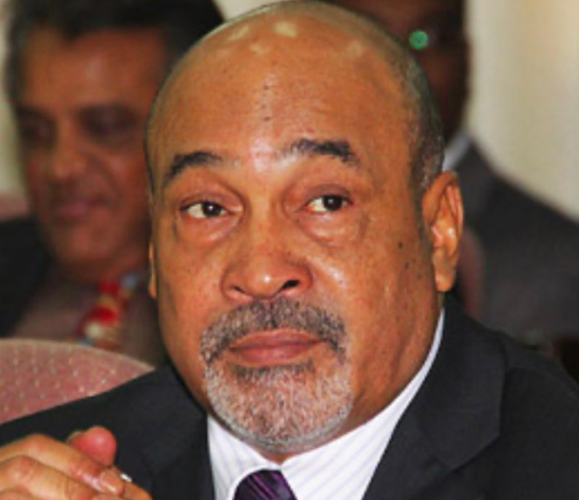
The three-judge chamber also confirmed Bouterse’s sentence of 20 years in prison. It was not immediately clear when Bouterse, who was not in court, would begin serving his term. The court also sentenced his four co-accused to 15 years each.
It took 41 years, but the long arm of the law has finally caught up to Desi Bouterse,” said Reed Brody, an American lawyer who attended the verdict for the ICJ. “Suriname has chosen the rule of law. The judges who rendered today’s decision and those who issued the original conviction while Bouterse was still president should be praised for their fortitude and their independence.”
Bouterse’s lawyer had indicated that in the event of a conviction, he would file a challenge with the Inter-American Commission on Human Rights, though it is not clear on what ground, and such a filing does not stay the operation of the sentence. The only domestic channel available for Bouterse is to seek a pardon from president Chan Santokhi.
The ICJ underscored that extrajudicial executions are crimes under international law, that Heads of State enjoy no special immunity from prosecution for such crimes irrespective of when they were committed, and that pardons may not be applied to shield those responsible from criminal accountability.
Today’s decision is a victory for the families of Bouterse’s victims, who never gave up, and for all those around the world seeking to bring powerful abusers to justice,” said Brody. “It should serve as another reminder that accountability for the most serious crimes has no expiration date.”
Background
On 8 December 1982, 15 leading opponents of Suriname’s then military regime led by Desi Bouterse, who had been taken from their homes and arbitrarily detained the night before, were executed at the military barracks of Fort Zeelandia in the capital Paramaribo, after apparently being subjected to torture. The victims included the country’s chief labor leader, four lawyers, two reporters, a radio commentator, the owner of a news service, an industrialist, a former congressman, and a professor of biophysics.
No investigation of the killings was undertaken, even following the restoration of democracy in 1987. On the eve of the expiration of the 18-year statute of limitations for murder in 2000, the families of the victims obtained a court order mandating an investigation. In November 2007 the Krijgsraad (a military court comprised in the case of Bouterse of civilian judges) was established to hear charges against Bouterse and 24 other suspects. The process was plagued with prolonged suspensions and delays, especially following the election of Bouterse as president of Suriname in July 2010. First, the trial was suspended for four years following an amendment passed by Bouterse’s party to the Amnesty Law of 1989 (now repealed) granting him and the other accused immunity from prosecution. Then Bouterse ordered the attorney general (procureur-generaal) to block resumption of the trial on “national security” grounds, but the courts refused the request. He also sought unsuccessfully to fire the attorney general,an independent judicial officer with lifetime tenure, for failing to stop the prosecution. Finally, on 29 November 2019, while Bouterse was still president, the Krijgsraad sentenced him to 20 years in prison for planning and ordering the “December murders”. Because Bouterse chose not to be present at that trial, he was able to obtain a review of the conviction. On 30 August 2021, the Krijgsraad affirmed the conviction. Eyewitness and video evidence adduced at the trials placed Bouterse at Fort Zeelandia where he personally confronted victims before they were shot.
Bouterse, who lost power in 2020, appealed to the Hof van Justitie.
The ICJ has been monitoring the Bouterse trial since 2012. Details of some earlier ICJ’s missions reports and statements can be found here.
Contact:
In Paramaribo, Reed Brody (English, Spanish, French, Portuguese): +1-917-388-6745 or reedbrody@gmail.com. Twitter: @reedbrody
Watch his post-verdict interview with ITV here: https://www.youtube.com/watch?v=1A3DBVVsAmY&t=132s
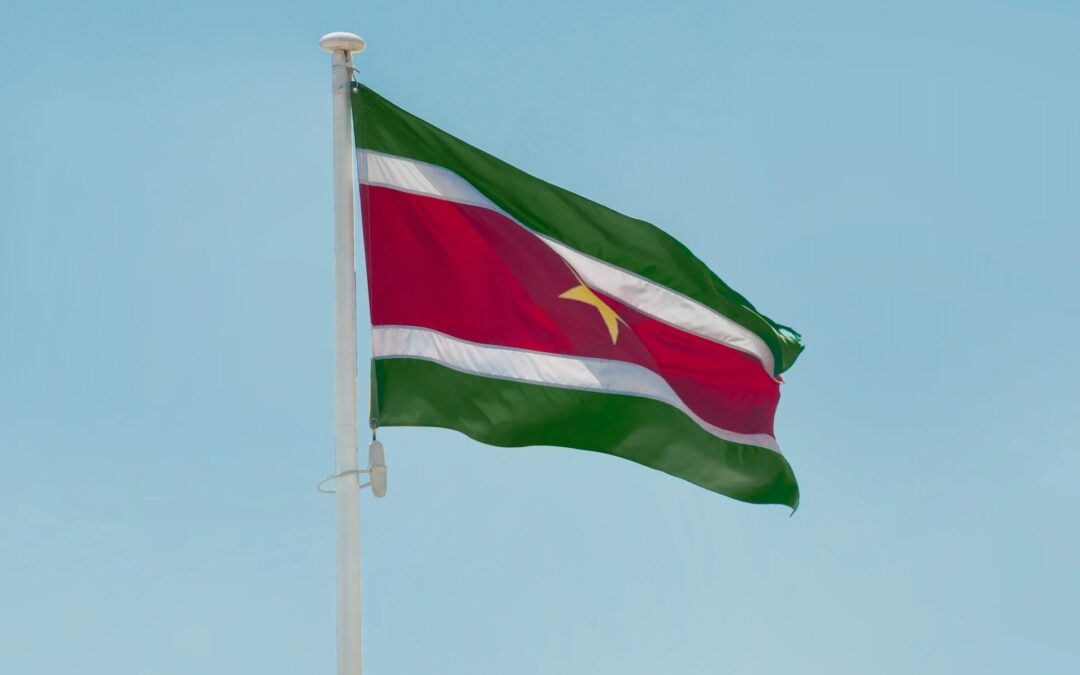
Suriname: Verdict in trial of ex-president
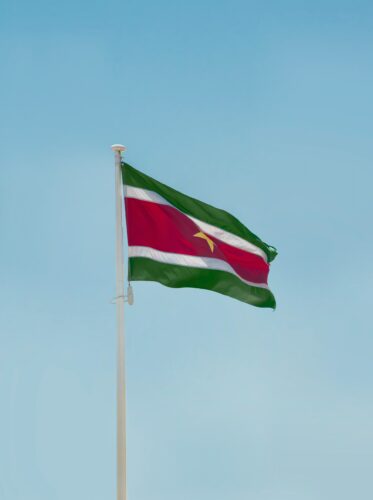
ICJ will monitor Desi Bouterse appeal
Paramaribo, Suriname; 17 December 2023 – On 20 December 2023, the Hof van Justitie, the highest court in Suriname, is expected to issue its final decision in the appeal by former president Desi Bouterse against his conviction for the 1982 murders of 15 political prisoners.
The International Commission of Jurists, which has monitored the trial since 2012, will be present in court in Paramaribo.
“This is the most important criminal trial in Suriname’s history,” said Reed Brody who will attend the verdict for the ICJ. “That a final decision will be delivered, after so many delays and detours, is a tribute to the courage and independence of Surinamese judges, the perseverance of the victims’ families and the resilience of the rule of law.”
Background
On 8 December 1982, 15 opponents of Suriname’s then military regime led by Desi Bouterse, including lawyers, union leaders and journalists, who had been arbitrarily detained the day before, were executed at the military barracks of Fort Zeelandia, Paramaribo, Suriname, after apparently being subjected to torture. Following a complaint by the families of the victims in 2000, in November 2007 the Krijgsraad (a military court comprised in the case of Bouterse of civilian judges) was established to hear charges against Bouterse and 24 other suspects. The process was plagued with serious suspensions and delays, especially following the election of Bouterse as president of Suriname in July 2010 and an amendment of the Amnesty Law of 1989 (now repealed) granting him and the other accused immunity from prosecution. On 29 November 2019, following a decade-long court martial, the Krijgsraad sentenced Bouterse- while he was still president – to 20 years in prison for planning and ordering the “December murders”. On 30 August 2021, the Krijgsraad affirmed the conviction and Bouterse- who lost power in 2020 – appealed. A final decision of the Hof van Justitie is due on 20 December in the cases of Bouterse and four others who have appealed their convictions.
ICJ Monitors
The ICJ trial monitors have been: from 2012 until 2020 – Jeff Handmaker, a former UK barrister and associate professor at Erasmus University in The Netherlands and the University of the Witwatersrand in South Africa; from 2020 – Godfrey Smith SC, former Attorney General of Belize, former acting Justice of Appeal of the Eastern Caribbean Supreme Court; and from 2023 – ICJ Commission member and veteran war crimes prosecutor Reed Brody who has participated in cases involving Augusto Pinochet, Hissène Habré and Jean-Claude Duvalier among others.
Reed Brody will be present in court on 20 December.
Details of some earlier ICJ’s missions reports and statements can be found here.
Contact:
In Paramaribo, Reed Brody (English, Spanish, French, Portuguese): +1-917-388-6745 or reedbrody@gmail.com. Twitter: @reedbrody




